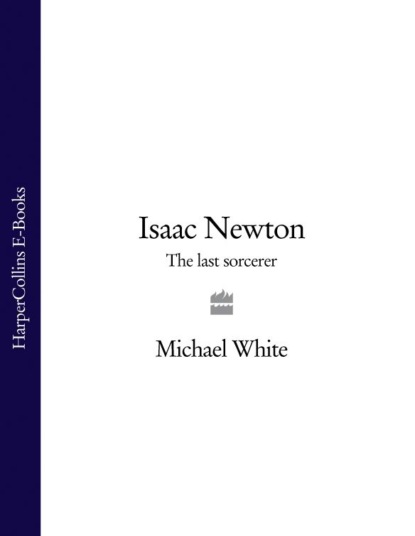По всем вопросам обращайтесь на: info@litportal.ru
(©) 2003-2024.
✖
Isaac Newton: The Last Sorcerer
Настройки чтения
Размер шрифта
Высота строк
Поля
What is so surprising is not so much that Smith did not want Hannah’s son to live with them but that Hannah should go along with these terms. Even accepting that nothing was known of psychology in the seventeenth century, that a mother would willingly trade her son for a new life strikes the twentieth-century observer as totally heartless.
Contemporary accounts of Hannah’s character provide us with very little that is believable about her or helpful in reading her character: John Conduitt tells us, ‘She was a woman of so extraordinary an understanding and a virtue that those who … think that a soul like Sir Isaac Newton’s could be formed by anything less than the immediate operation of a Divine Creator might be apt to ascribe to her many of those extraordinary qualities with which it was endowed.’
(#litres_trial_promo) Giving her the benefit of the doubt, however, we can only speculate that she agreed to the arrangement reluctantly and primarily for her son’s future. Smith was old and wealthy, and Hannah doubtless thought he would not live long. Because his first marriage had been childless, upon his death she would, she might assume, inherit everything, and after the short period of separation Isaac would benefit greatly from the union. But it was hardly as if the Newtons were destitute. By the standards of the day they were doing very nicely indeed. Did she really need to agree?
We only have two pieces of evidence to demonstrate Hannah’s love for her son. First is the fact that she made him sole heir to the estate and in her will she left her body to be buried as Isaac ‘shall think fit’.
(#litres_trial_promo) The other is a scrap of a letter written in her barely literate hand during Isaac’s undergraduate days which reads:
Isack
received your letter and I perceive you letter from mee with your cloth but none to you your sisters present thai love to you with my motherly lov you and prayers to god for you I your loving mother
Hannah
(#litres_trial_promo)
It would appear from this that Hannah loved her son as any mother would, and, rather than their separation being something she agreed to readily for financial gain or convenience, it is far more likely that Isaac’s fate was decided by others within the Newton family. Smith may not have been enthusiastic about the idea of having another man’s son in his house; he may have seen Isaac as a threat to his nascent relationship with Hannah; the boy might even have been perceived as a disruptive influence: but this does not mean that Smith insisted that Isaac remain at the manor. It is quite possible that the suggestion came from the Newtons: by keeping the three-year-old at the family home, they could maintain control of the estate, keeping it out of Smith’s hands.
Perhaps Newton never learned the real reason why he was left at the manor; he certainly never mentioned it later in life. But, after the various arguments had been mulled over, his mother accepted Smith’s offer under the negotiated conditions and on 27 January 1646 her list of surnames increased by one, to Ayscough-Newton-Smith.
Unfortunately for Newton the boy, but conceivably of the utmost importance to the advancement of human knowledge, any hopes that Hannah might have had for a short marriage followed by great wealth were disappointed. Barnabas Smith lived for almost another eight years, dying at the age of seventy-one in 1653 after fathering three children: Mary (Marie), born in 1647; Benjamin, born in 1651; and Hannah, born in 1652. Although circumstances would later result in these half-siblings doing little to damage the value of Isaac’s inheritance, the enforced separation from his mother at such an impressionable age has long been recognised as one of the key factors in shaping Newton’s character.
Isaac had been raised solely by his mother, and there is little doubt that until her departure they were almost inseparable; his dependency upon her would have been far greater than if both his parents had survived. Furthermore, it was not death which effectively deprived Newton of his mother: she was taken by another man and continued to live close by. To rub salt into Isaac’s emotional wounds, he never knew when or if his mother would turn up. Sometimes she would reappear for an hour or for an afternoon, but always she would go again – and always to the other man, the hated Barnabas Smith. We know from clues left in his notebooks and personal papers that Newton loathed his stepfather and, to a lesser extent, grew to resent his mother.
Of Newton’s earliest writings only a few fragments remain, but these provide some revealing insights into the psychology of the boy. Four notebooks survive from his days in Lincolnshire and his first year at Trinity College, Cambridge. Of these, the most interesting are a notebook kept at the Fitzwilliam Museum, Cambridge, and a schoolboy exercise book in the possession of the Pierpont Morgan Library in New York, which has become known as the Morgan Notebook.
Newton began writing in the Fitzwilliam Notebook sometime during the early summer of 1662, when he was a nineteen-year-old undergraduate. At first he treated the book as a form of confessional, purging himself by writing out his felonies against the Lord. In shorthand, he drew up two lists: of sins committed ‘Before Whitsunday 1662’ and of those ‘Since Whitsunday 1662’. The first list, stretching back to his childhood, contains forty-five transgressions; the other, more recent, set contains nine ‘sins’. Most startling of this earlier batch are numbers 13 and 14: ‘Threatening my father and mother Smith to burne them and the house over them’ and ‘Wishing death and hoping it to some’.
(#litres_trial_promo) What is so surprising about these entries is not so much the violence of Isaac’s feelings as a child – that could be expected – but the fact that he remembered his anger so clearly and felt compelled to confess it so many years later, long after the principal object of his hatred was dead and buried.
Perhaps even more fascinating is the window into Newton’s psychology offered by the schoolboy exercise book, the Morgan Notebook. This contains collections of scribblings, ideas jotted down from books Isaac read, lists and other notes probably dating from about the age of ten to his early teenage years. Most pertinent to his mental state is an alphabetical list of word associations based upon a contemporary book, Father Francis Gregory’s Nomenclatura. Newton placed these associations under different headings. Under the heading ‘Of Kindred and Titles’, we have F: ‘Father’ (out of Gregory) followed by ‘Fornicator’ and ‘Flatterer’ (both from Newton). Under B we have ‘Brother’ (Gregory) followed by ‘Bastard’, ‘Blasphemer’, ‘Brawler’, ‘Bedlam’, ‘Beggar’ and finally ‘Benjamite’ (all from Newton – whose half-brother, it should be remembered, was named Benjamin).
(#litres_trial_promo) W begins innocently with Gregory’s ‘Wife’ and ‘Wedlock’, but is completed by Newton’s ‘Whore’.
(#litres_trial_promo)
Although he was later attentive and caring towards his mother, and nursed her during her final illness in 1679, the psychological scars of her remarriage clearly dug deep and almost certainly affected Newton’s future relationships with women. Although unquantifiable, the effect of such trauma moulds different individuals in different ways according to their particular circumstances, and in Newton’s case we may match the damage to the personality which emerged from the wreckage.
During the eight years in which Hannah lived in North Witham, Isaac remained in the care of his grandparents, James and Margery Ayscough, who had taken up residence at the manor. As Newton never mentioned his grandparents later in life, it would appear there was little love lost between them. The Ayscoughs probably did their best, but they could never have replaced Hannah. From a state where he could do no wrong, bonded intimately with his gentle mother, he was inexplicably deserted and thrust into the care of two elderly people. The three-year-old Isaac’s instinctive reaction to being left in this situation would be to feel overwhelming guilt, to imagine he had somehow done something terribly wrong. Interestingly, the Morgan Notebook includes O: ‘Orphan’ (Gregory) followed by ‘Offender’ (Newton). When, eight years later, Hannah returned to stay, the eleven-year-old pre-pubescent was again disturbed emotionally. Was his mother’s sudden return a reward? Had he then been right all along to feel guilty over some unknown and unknowable deed? Had he now served his punishment?
Upon Hannah’s return, his parents moved back to their home village of Market Overton, a few miles distant, and Hannah perhaps assumed that her and Isaac’s lives could pick up where they had left off in 1646. But it was not to be. They were certainly wealthier and more secure, but the rift between mother and son was now too wide ever to heal properly. Not only was the fact of her desertion irreversible, but she was returning to the manor with three young children in tow.
Apart from the word associations of the Morgan Notebook, little evidence remains of Isaac’s feelings towards his half-siblings, but we can understand the resentment he must have harboured for this threesome whose father he despised and with whom he could only associate betrayal and desertion. In his school Latin exercise book (one of the four documents surviving from his youth) we have his comment, ‘I have my brother to entreat’,
(#litres_trial_promo) in which a number of biographers have detected a hint of sarcasm – at least, now his mother had returned, he had a brother to talk to – but nothing else on the subject survives.
Although by all accounts Newton was a quiet child, he also possessed a malicious streak, as is evidenced by his private outbursts against Smith recorded in the Fitzwilliam Notebook. Hannah may well have been relieved when a year after her return he was old enough to attend King’s School in Grantham, seven miles away – a distance much too great to travel each day.
Established sometime during the 1520s, by the time Newton arrived King’s School had for some 130 years provided a solid grounding in what were then considered to be the basics of education: Latin, Greek and Bible studies. In 1654 the headmaster was Henry Stokes, a graduate of Pembroke Hall, Cambridge, and a man who later exerted a profound influence upon the course of Newton’s early academic career.
If the years immediately following Hannah Newton’s departure for a new life with Smith and the confusion of her return moulded Isaac’s emotional make-up, then those between his arrival in Grantham and his leaving for Cambridge in 1661 laid the foundations of his intellectual outlook. He had two major influences in this new life. The first was the routine of a formal education; the other was his new home environment as a lodger with the family of the local apothecary, the Clarks, who had close links with Grantham School and provided accommodation for a succession of pupils in their apartment above the apothecary shop next to the George Inn on the High Street.
At first, school was of little interest to Isaac, as is shown by his lacklustre and completely unexceptional academic status. He was quick to learn but was also a natural autodidact, ignored by most of his teachers and disliked by the other boys. Pupils were expected to learn the core curriculum of classical languages and scriptural studies parrot-fashion. It all required little imagination and offered no inspiration for inquisitiveness. It is, to the modern mind, astonishing that Newton had no formal mathematical training until he entered Cambridge (and even then mathematics was not part of the standard curriculum during his first years as an undergraduate). To compensate for this dull fare, Isaac first read the books handed down to him by his stepfather and later those he found in the library of St Wulfram’s church in Grantham – a long, narrow room above the church porch. Most of these texts were dry fodder indeed: theological tracts and Puritan propaganda that Newton was encouraged to read by a Puritan divine and lecturer at the school named John Angell.
These theology books and the encouragement of Angell led Newton into a religious doctrine he maintained for the rest of his life, but they did not provide the intellectual meat he needed. Fortunately, other books came his way. The most important in leading him to scientific inquiry was The Mysteries of Nature and Art by John Bate, which Isaac discovered when he was about thirteen. He was totally captivated by it and spent 2
/
d. on an exercise book into which he copied out long passages.
Bate’s book, first published in 1634, was full of detailed instructions for making wonderful machines and devices, and it was from following these that the teenage Newton was able to design and build working mechanical models for which he gained something of a reputation as a schoolboy. Some seventy years later, Stukeley was able to find a few old folk who still remembered Newton’s miraculous models – windmills that actually worked, into which the boy sometimes placed a mouse to turn the sails; kites; perfectly functioning sundials; and paper lanterns with which he found his way to school on dark winter mornings. The ancient villagers to whom Stukeley referred knew nothing of Bate’s book, which might go some way to account for such hyperbole as ‘Newton’s innate fire was soon excited. He penetrated beyond the superficial view of the thing … He obtained so exact a notion of the mechanism of it, that he made a true and perfect model of it in wood; and it was said to be as clean a piece of workmanship as the original.’
(#litres_trial_promo)
Model-building provided a suitably insular pastime for a boy who appears to have had no friends at school. According to Stukeley’s interviewees, Newton tried to interest his schoolmates in his cerebral activities; rather than being content to watch his contemporaries indulge in what Stukeley calls ‘trifling sports’, Isaac apparently tried to ‘teach them … to play philosophically’.
(#litres_trial_promo)
It is easy to detect here the personality of a boy crying out for attention and companionship but simply unable to communicate with others of his age. He had been an only child, and under the best of circumstances such an upbringing can cause children to have difficulty in adjusting when they first encounter others of similar age at school. Stukeley and his followers have tried to imply that the matter went deeper than this: that there was something totally otherworldly about Newton as a boy. And no doubt he was exceptional; he was certainly a talented youth, even if at this age he showed little interest in the official curriculum. Thanks to Stukeley’s first-hand accounts, we know Isaac could draw and write well. ‘Sir Isaac furnished his whole room with pictures of his own making, which probably he copied from prints, as well as from life,’ claimed one interviewee.
(#litres_trial_promo) Another recalled in her dotage that Newton had written a poem for her, which she could still recall from memory.
(#litres_trial_promo) And, although his mathematical talent had not yet emerged, his interest in mechanical devices illustrates that the skill and curiosity of the scientist, the talent for constructing experiments and testing ideas, was already awakened.
What eventually transformed his unhappy relationship with official learning was a seemingly trivial event. On the way to school one morning, one of the boys in his class (according to some historians, Clark’s stepson, Arthur) kicked Isaac hard in the stomach. What provoked the attack is open to conjecture, but it is significant that the bully was one place above Newton in their class ratings. Enraged, Isaac challenged the other, much larger, boy to a fight after school. According to John Conduitt, who popularised the tale:
[A]s soon as the school was over he challenged the boy to fight, & they went out together into the church yard, the schoolmaster’s son came to them whilst they were fighting & clapped one on the back & winked at the other to encourage them both. Though Sir Isaac was not so lusty as his antagonist he had so much more spirit & resolution that he beat him ‘til he declared he would fight no more, upon which the schoolmaster’s son bad him use him like a coward, & rub his nose against the wall & accordingly Sir Isaac pulled him along by the ears and thrust his face against the side of the church.
(#litres_trial_promo)
Still not content, before leaving the bully to nurse his wounds, Newton declared he would not rest until he had overtaken his combatant’s academic position. According to Conduitt, Isaac not only overtook the bully but, within a short time, rose to first place in the school.
The rooms Newton shared with the Clarks above the apothecary shop must have been crowded at this time; Mr Clark and his wife had three children from his wife’s previous marriage – Catherine, Eduard and Arthur Storer. Newton probably shared a room with one or both of the brothers, and in any event, given the size of apartments above town-centre shops of the seventeenth century, living conditions must have seemed very cramped to a boy brought up in a manor house set in acres of open space. Yet, by all accounts, Isaac was content living with the Clarks. If Arthur Storer was indeed his antagonist until the fight in the churchyard, then we can imagine the schoolboy arguments and rivalries within the Clark household when the adults were out or busy in the shop. It is easier to imagine the rows and recriminations after the fight, when Arthur and Isaac returned home, one with cuts and bruises all over his face, the other still rigid with anger.
Fortunately for Isaac, the Clarks appear to have been a very placid couple who raised their children with a distinctly far-sighted liberalism quite atypical of the time. Furthermore, Clark – proud of his position as an apothecary and, according to contemporaries, a cheerful, open man – encouraged the inquisitive Newton to watch him at work and to ask questions.
To Newton, bored with school and searching for something to stimulate his intellect, the apothecary – a repository for chemicals from which remedies and medicines of all descriptions were concocted and sold to the public – was a place full of wonders. On the shelves around the walls of the shop stood jar upon jar of strange-coloured powders and liquids – yellow sulphur, silver mercury, red lead oxide. The shop provided him with his earliest experience of the possibilities of chemistry. It also offered an opportunity to conduct his own experiments.
We know from his surviving notebooks that Newton did not simply watch Mr Clark go about his business but transcribed remedies and cures from books he discovered alongside the chemical jars. He may have even devised his own recipes. In these journals we find descriptions of how to produce paints and pigments, methods by which glass may be cut with chemicals, and ‘a bait to catch fish’. We also encounter cures for various illnesses – such as that for fistulas (here meaning surgically produced openings into the body), which involved ‘drinking twice or thrice a day a … small portion of mint and wormwood and 300 millipedes well beaten (when their heads are pulled off) in a mortar … & suspended in 4 gallons of ale in its fermentation’.
(#litres_trial_promo) Newton was evidently a hypochondriac from an early age and was fond of concocting remedies which he both used upon himself and offered to others. He listed over 200 different human ailments in the Morgan Notebook under the heading ‘Of Diseases’.
As well as receiving his earliest knowledge of primitive chemistry from Clark the apothecary, Newton acquired from him an introduction to the concept of brotherhood.
(#litres_trial_promo) Along with all other members of his profession (which at the time existed in a anachronistic limbo: part shopkeeping, part quack medicine), Clark was a member of the Society of Apothecaries. Perhaps, upon his return from regular meetings of the society at its then premises in Water Lane in London, the affable Clark would hint at the proceedings and glamorise the rules and regulations of the organisation to the ever-inquisitive Newton. In this way he not only inspired the boy to delve into the arcane world of cures, remedies and recipes but provided him with another valued piece of knowledge: the concept that there existed brotherhoods through which individuals could communicate and circulate information.
Primitive chemistry and the charms of the apothecary’s world were not the only distractions in the Clarks’ home. Living under the same roof was Mr Clark’s stepdaughter, Catherine Storer, the only female other than his mother and later his half-niece Catherine Barton to whom Newton is known to have been emotionally attached.









